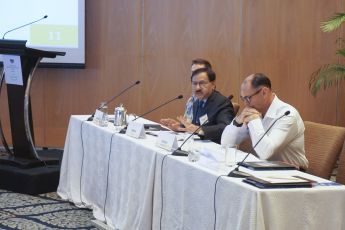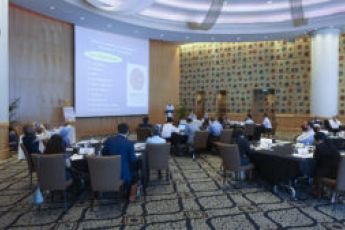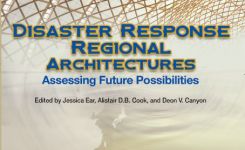- Daniel K. Inouye Asia-Pacific Center for Securi...
- DKI APCSS and RSIS cohosted the workshop on “Di...
DKI APCSS and RSIS cohosted the workshop on “Disaster Response Regional Architectures: Assessing Future Possibilities"
dsc00173_1.jpg

The co-hosts convened 33 humanitarian assistance and disaster response (HADR) professionals, to include serving military and civilian government officials, educators and civil society representatives from four sub-regions: Northeast Asia, South Asia, Oceania and Southeast Asia to share varying perspectives. Participants identified trends, ––challenges, best practices, opportunities and recommendations for improved disaster response regional cooperation within adaptable and resilient regional response architectures. Discussants were drawn from 16 locations: Cambodia, India, Indonesia, Japan, Laos, Malaysia, Myanmar, Nepal, New Zealand, the People’s Republic of China, Philippines, Singapore, Taiwan, Thailand, the United States, and Vietnam.
The workshop agenda addressed the response cooperation landscapes of the Indo-Asia-Pacific at the strategic and sub-regional levels. Case studies presented from each sub-regions viewed aid through the lens of receiver and provider nations to identify best practices and opportunities for intra and inter-regional sharing and considerations.
P.K. Taneja, the newly appointed Director of the SAARC Disaster Management Centre, stated that “I, being new to the whole subject of Regional Disaster Response Mechanism, am fortunate to have exposure to different regional architectures and many best-practices could be replicated in SAARC Disaster Management Centre as well.”
Over the course of the three days, facilitators and practitioners worked to collectively prioritize the top five opportunity areas for improved response coordination and recommended validation and integration methodologies for institutional changes.
“After returning to my country, I will focus on wider collaboration and engagements, national legislation and policy formulation, implementation and capacity enhancement of local humanitarian partners.” According to Krishna Bahadur Raut, Nepal (CCM17-1), Chief of the Disaster Management Division and Joint Secretary for the Ministry of Home Affairs.
Participants concluded the workshop with a strategic discussion on conditions needed for adaptable and resilient regional disaster response architectures.
Disaster Response Regional Architectures: Assessing Future Possibilities was the topic of a recent workshop co-hosted by the Daniel K. Inouye Asia-Pacific Center for Security Studies (DKI APCSS and the S. Rajaratnam School of International Studies (RSIS) at the Nanyang Technological University, Singapore. Held in Bangkok, Thailand, July 18 to 20, 2017, the blended practitioner and academic workshop focused on the future of disaster response regional architectures development. DKI APCSS and RSIS will document the workshop findings and recommendations for improved regional disaster response coordination and cooperation in a published report to be released by the end of September 2017.
Associated Files
dsc00159_1_0.jpg

dsc00212_1_0.jpg

dsc00164_1-300x169.jpg



